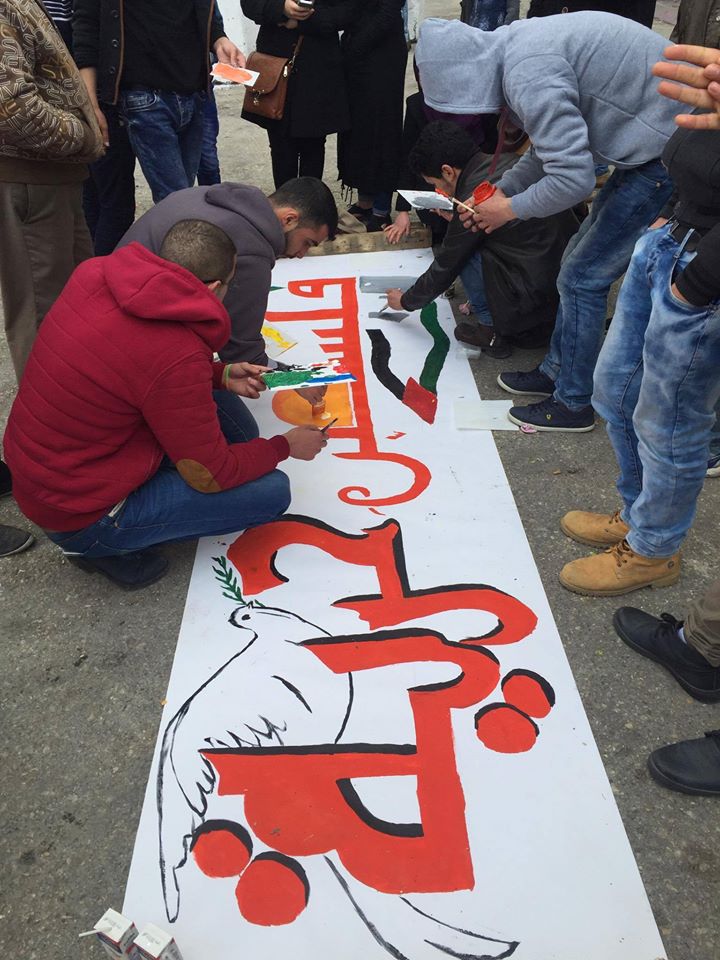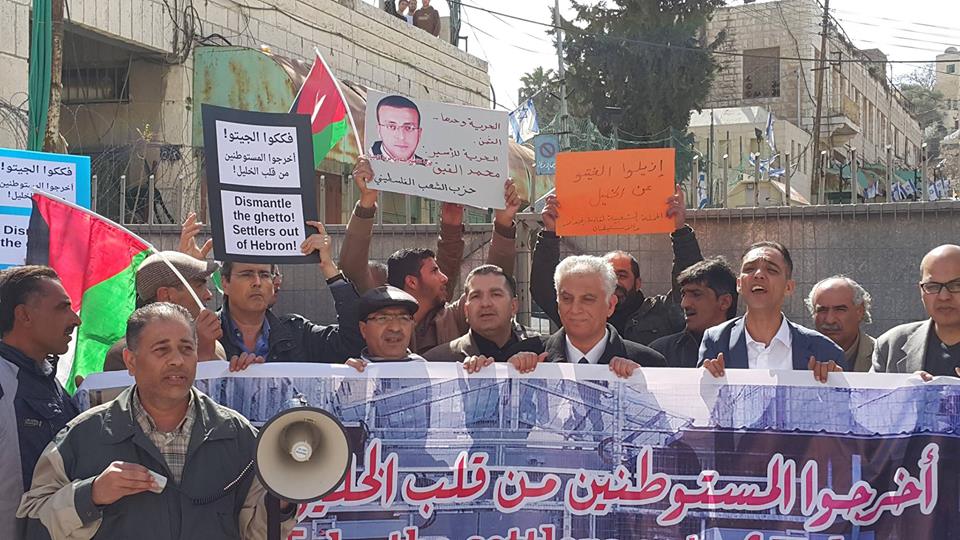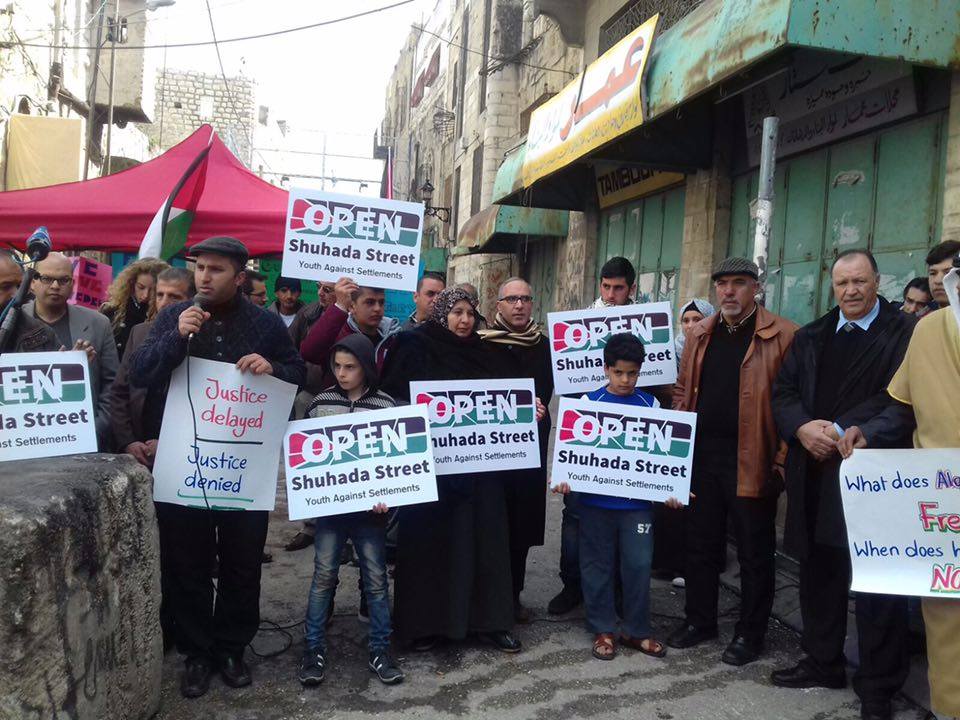Tag: International law
-
Peaceful painting-activity met with violence by Israeli army
21st February 2015 | International Solidarity Movement, Al-Khalil team | Hebron, occupied Palestine On Sunday the 21st of February, the people of Hebron along with fellow activists gathered for part of a week long campaign against occupying Israel to show solidarity and oppose the closure of Shuhada Street to the Palestinian people. Shuhada Street has…
-
Israeli forces use excessive violence on peaceful demonstration in Hebron
20th February 2016 | International Solidarity Movement, al-Khalil team | Hebron, occupied Palestine On 20th February 2016, the Hebron Defence Committee, the Human Rights Defenders Group and other popular struggle committees organised a demonstration under the motto ‘Dismantle the Ghetto, take the settlers out of Hebron’ in occupied al-Khalil (Hebron). Israeli forces attacked the peaceful…
-
Youth Against Settlements holds press conference in front of Shuhada Street checkpoint to announce 2016 Open Shuhada Street campaign
20th February 2016 | Youth Against Settlements | Hebron, occupied Palestine Youth Against Settlements held a press conference in front of the Shuhada Street checkpoint to announce the beginning of the Open Shuhada Street Campaign. Over a hundred people attended. Palestinian TV, AL-Quds TV, and other local and international media organizations were present. Youth Against…



